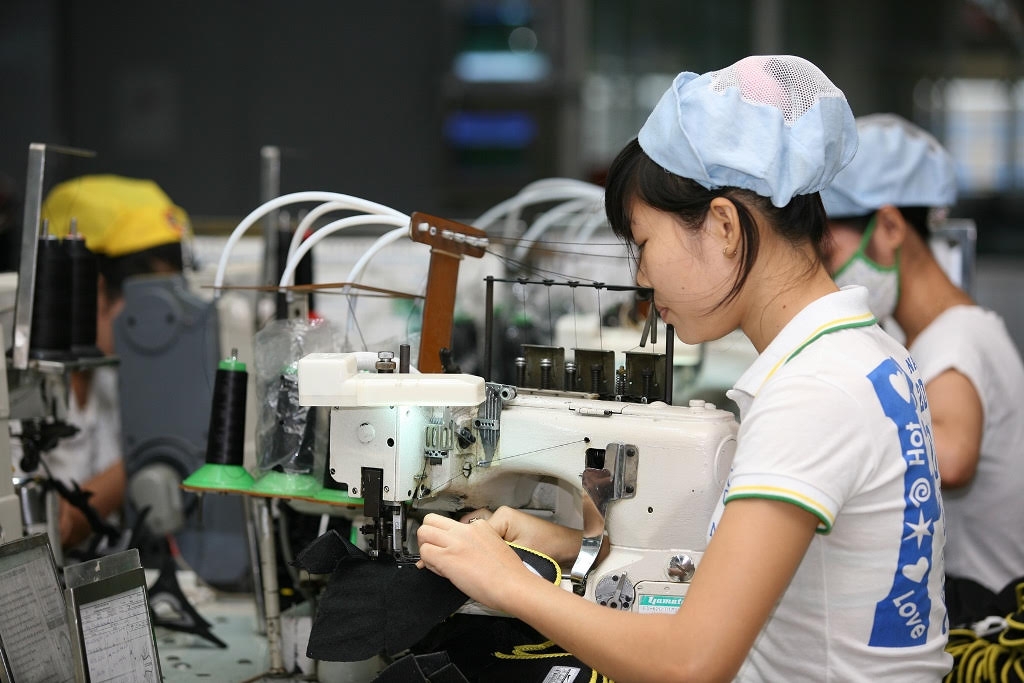Vietnam offering thriving prospects for UK groups
 |
| Vietnam offering thriving prospects for UK groups |
British Ambassador to the ASEAN Jon Lambe told VIR that with the UK having left the EU to enter a transition period just days before the EVFTA was ratified by the bloc, it is now free and flexible to negotiate its own FTAs with any partners around the world.
“The UK is beefing up its bilateral co-operation with Vietnam. We are negotiating a bilateral FTA with our friends here, and things are going very well,” Lambe said. “We look forward to and hope for negotiations to be concluded sometime this year. The agreement is important for both the UK and Vietnam as it will foster trade and investment relationship between both sides.”
According to Baker McKenzie Vietnam, the UK and Vietnam may negotiate their own FTA, entering into force any time after the UK has fully exited from the EU.
“Whether Vietnam may offer the same terms of trade to the UK alone as it offered to the entire EU market remains to be seen,” said the firm’s report on the EVFTA and Brexit, involving the future of trade between the UK and Vietnam.
According to the UK’s Department for International Trade, Vietnam is an exciting place to do business. It cites a large, young population and a growing middle class, with a fast-growing economy and government reforms that can open up markets for British companies.
There are opportunities for such companies across a broad range of industries. The department’s trade advisers in Vietnam have identified particular opportunities for UK businesses in sectors such as energy, infrastructure, healthcare, and education.
For example, the department said Vietnam is moving away from fossil fuels and towards renewable energy, currently dominated by hydroelectricity. This is creating excellent opportunities for UK groups specialising in the sustainable energy field.
In the infrastructure sector, Vietnam has excellent openings for British companies to get involved in its ambitious programme of infrastructure development, which includes new urban railways and an international airport. According to the Asian Development Bank, Vietnam spent 5.7 per cent of its GDP on infrastructure development in 2017, the highest figure in Southeast Asia.
The department is also seeing Vietnam’s expanding public transport network as an opportunity for UK investors.
“Vietnam’s plans to build eight metro lines in Hanoi and another eight in Ho Chi Minh City are in the early stages. A planned project to build a high-speed North-South railway is also expected to start in 2020. This is creating opportunities for UK businesses that have products and services in the railway supply chain,” said the department on its website.
Recently, at the 11th meeting of the UK-Vietnam Joint Economic and Trade Commission (JETCO) in the north-eastern province of Quang Ninh, the UK and Vietnam committed to further strengthen partnerships, with discussions focused on a range of issues including bilateral trade and investment ties, as well as co-operation in education, healthcare, energy, agriculture, and financial services.
“Vietnam is one of the most dynamic markets and a key trading partner for the UK going forward, with UK exports to the nation worth over £800 million (over $1 billion) in 2018,” said the UK’s Minister of Trade Policy Conor Burns.
The first official UK-Vietnam JETCO took place in 2007. To date, it has given UK pharmaceutical companies the ability to export vaccines to Vietnam that have been in the UK market for over five years without the need for local clinical trials, allowing life-saving drugs to enter the market.
Currently the UK’s total registered investment capital in Vietnam is $3.7 billion, according to Vietnam’s Ministry of Planning and Investment, although registered capital of the UK overseas territory of the British Virgin Islands and territories collectively known as the British West Indies sits at $21.72 billion and $947.5 billion, respectively.
What the stars mean:
★ Poor ★ ★ Promising ★★★ Good ★★★★ Very good ★★★★★ Exceptional
 Tag:
Tag:
Related Contents
Latest News
More News
- Kurz Vietnam expands Gia Lai factory (February 27, 2026 | 16:37)
- SK Innovation-led consortium wins $2.3 billion LNG project in Nghe An (February 25, 2026 | 07:56)
- THACO opens $70 million manufacturing complex in Danang (February 25, 2026 | 07:54)
- Phu Quoc International Airport expansion approved to meet rising demand (February 24, 2026 | 10:00)
- Bac Giang International Logistics Centre faces land clearance barrier (February 24, 2026 | 08:00)
- Bright prospects abound in European investment (February 19, 2026 | 20:27)
- Internal strengths attest to commitment to progress (February 19, 2026 | 20:13)
- Vietnam, New Zealand seek level-up in ties (February 19, 2026 | 18:06)
- Untapped potential in relations with Indonesia (February 19, 2026 | 17:56)
- German strengths match Vietnamese aspirations (February 19, 2026 | 17:40)






















 Mobile Version
Mobile Version